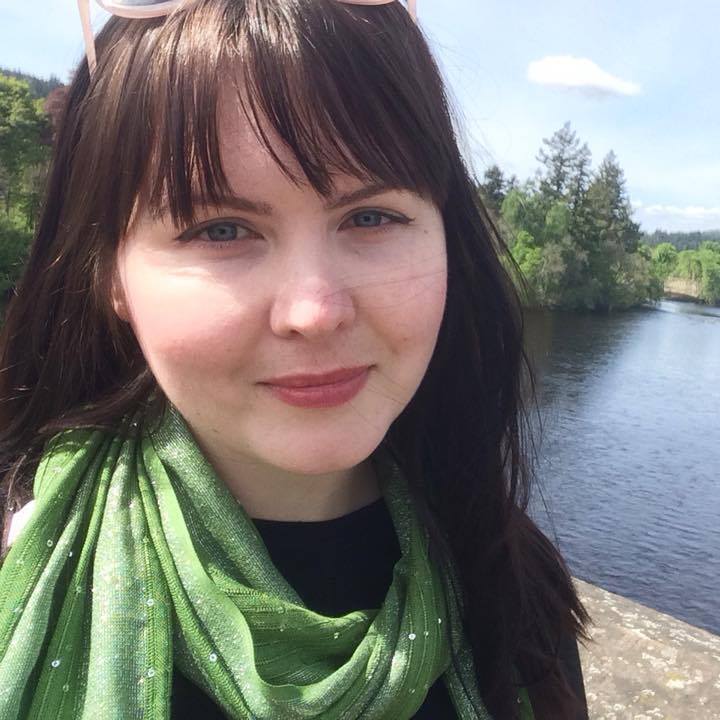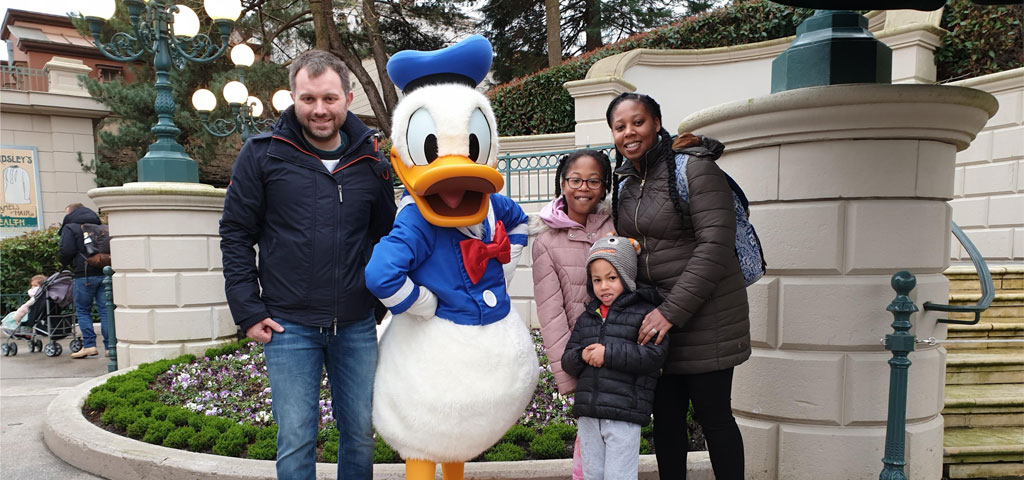With people feeling nervous about seeing their GP during the pandemic and it sometimes being harder to get an appointment, it can be easy to put it off. But if you have potential symptoms of a brain tumour, or an existing diagnosis with recurring symptoms, it’s important not to delay seeking advice.
Here, three people share their experiences of being diagnosed and treated for a brain tumour during lockdown and why they’d encourage others not to wait.
Amy
Amy Willoughby, 33, was diagnosed with a brain tumour in June after having a seizure while driving to the supermarket.

I think itu2019s difficult to get a challenging diagnosis like this during a lockdown as there was little going on socially to distract myself, and people understandably werenu2019t forthcoming with hugs!
Amy
Amy had experienced severe fatigue for five years but no GP had taken her symptoms seriously before. After the seizure, she was taken to A&E for an emergency CT scan, then moved to the Acute Medical Unit and referred to the neurology team. She had to stay in hospital for further tests and was soon diagnosed with a low grade glioma.
“I can’t fault the team who looked after me that evening,” says Amy. “They were all very caring, friendly and made sure to let me know what was happening. They were also very good at regularly communicating with my family, who were understandably anxious.”
Amy was then scheduled to have an operation in August with the aim of removing 50-70% of the tumour. “I had a pre-admission telephone assessment with a nurse, and my pre-op physical assessment was done two days before at a local private hospital. I had a COVID test then and was advised to self-isolate from then until admission.” she says.
The night before Amy’s surgery, she had a massive seizure in hospital. Her surgery was then cancelled due to an emergency with another patient, but rescheduled for early September. The operation was successful and she now has three-monthly MRI scans to monitor for any signs of regrowth.
Amy acknowledges it was a difficult time to undergo her treatment. She said: “I feel like my medical care has been very efficient, from largely compassionate and kind medical staff. However, I think it’s difficult to get a challenging diagnosis like this during a lockdown as there was little going on socially to distract myself, and people understandably weren’t forthcoming with hugs!
“In hospital, I was allowed one visitor at a time for an hour if they contacted the ward to book in advance. However, I slept through many visits. I was able to talk to other patients too though and I kept in touch with people with my phone and laptop.”
Amy also found solace in our online communities. She said: “The online groups have formed a very supportive community and have so many knowledgeable members too.”
She encourages anyone with symptoms to seek advice, “If people can’t get through to their GPs, I’d urge them to contact 111, or even contact The Brain Tumour Charity for advice.
“I realise how lucky I am – this experience has put everything into perspective. You really do find out who your friends are at times like this and I’ve been amazed at the support I’ve had.”
Karla
Karla Marsden, 36, was diagnosed with a meningioma in May, just a few weeks after the coronavirus pandemic hit the UK.
Karla went to her GP when painkillers stopped being strong enough to take the edge off her worsening headaches. Having seen that the headaches were a recurrent problem, her GP referred her for an MRI scan.
After the scan, she was asked to wait to speak to a specialist who confirmed that they’d found a mass on her brain. She then had to stay in hospital and wasn’t allowed to see her family due to the risk of coronavirus.
Karla said: “I really wanted someone there. I hadn’t even said a proper goodbye to my family when I left for the scan appointment as I thought I’d only be gone an hour. I was scared at the idea of having to stay in because of the risk of COVID but when I was actually there I did feel safe. I was in a different part of the hospital to any COVID patients and all the staff had PPE and stuck to the regulations. I felt really looked after.
“It was a bit weird only seeing half their faces because of their masks but I got used to it after a while. I only needed to wear a mask myself when being moved around the hospital.”

Karla was in hospital overnight, but, following more tests, she was allowed to go home for the next three weeks before she had surgery. Then, after two weeks of self-isolation, two negative coronavirus tests and pre-surgery assessments done over the phone, Karla spent another three days in hospital for the operation, which successfully removed 95% of the tumour.
Due to the coronavirus restrictions in place, Karla was alone when she came round from her surgery, so video calls were her source of support and companionship in those early days of recovery. “Although my experience was far from ideal, especially not being able to have any visitors, the hospital staff were fantastic – I felt and was kept safe. They saved me and, for that, my family and I are extremely grateful,” says Karla.
“I’d urge people not to put off going to their GP or visiting the hospital if they do have concerns, even during the pandemic. It’s not worth the risk. I hope sharing my story will encourage others to go to their GP if they do have any symptoms.”
Ben
Ben Wilson, 34, was diagnosed with a pilocytic astrocytoma in the middle of the first lockdown after contacting his GP about his severe headaches and dizziness.
When the pandemic took hold, Ben was furloughed and, with less to keep him busy, he began to notice his symptoms with greater regularity. His partner urged him to seek medical advice, so he contacted his GP on 5 May and, after both a phone and face-to-face appointment, he went to A&E.
Ben stayed in hospital to have a series of CT and MRI scans and he was soon sent for urgent surgery at Leeds General Infirmary. He had eight hours of surgery to remove the tumour, just a week after seeing his GP.
Afterwards, he spent six days in hospital, including a precautionary 24 hours in intensive care. The surgery successfully removed all of the tumour, so no further treatment was needed but he’ll now have regular scans to monitor his condition.



Ben said: “When I arrived at A&E, the waiting room was almost empty. After my scan, I was given a pager so I could go and sit elsewhere in the hospital as the ward waiting room was becoming too full for social distancing. I had a coronavirus test – which I did myself – before I was admitted to a specific ward, and spent my first night in a private room on my own until the test result came back. I wasn’t worried about catching coronavirus, the measures in place had become second-nature to the staff, which was reassuring without being overbearing,
“I wasn’t allowed any visitors while I was in hospital but I did get to know other patients and the staff better than I otherwise would have, as everyone was in the same boat. There were a lot of WhatsApp video and Zoom calls between me and my family and friends which helped.
“The communication from the various wards with my family over the two weeks I was in hospital was also very good, particularly when I was unable to communicate myself during and immediately after surgery.
“Even under the difficult circumstances, the care I was given from the NHS from start to finish was absolutely amazing – especially during the Coronavirus pandemic. I think I was actually very lucky with the timescale of treatment I received as it all happened within a fortnight.
“I hope that can offer optimism to anyone who receives a similar diagnosis. Anyone concerned should make that initial call to their GP and take their advice.”
Related content
Help us create change
Help everyone access the best treatment and care by taking part in our Improving Brain Tumour Care Surveys.
Get support
Our range of services for are designed to support people living with a brain tumour or or caring for someone.
Coronavirus and brain tumours
Information about coronavirus and how it can affect you following a brain tumour diagnosis.
